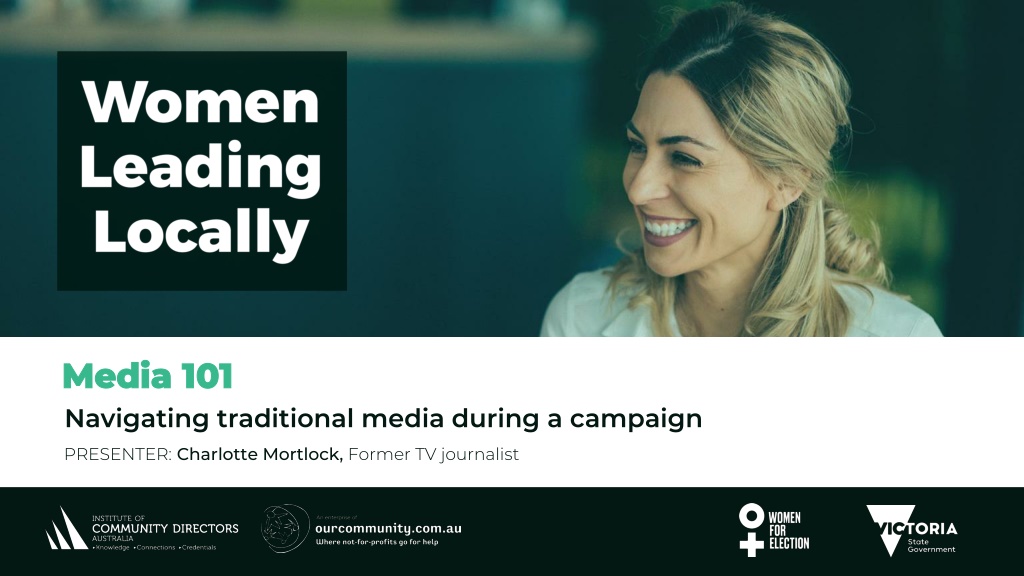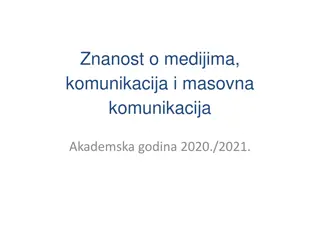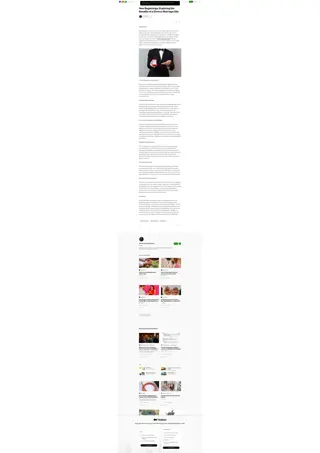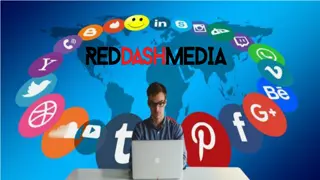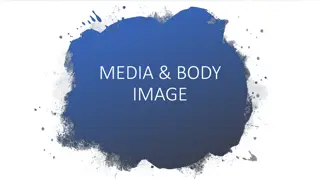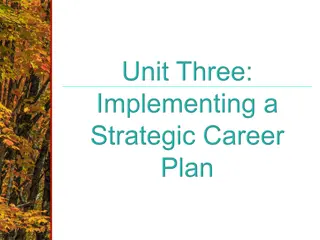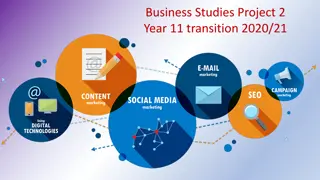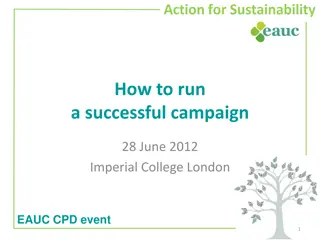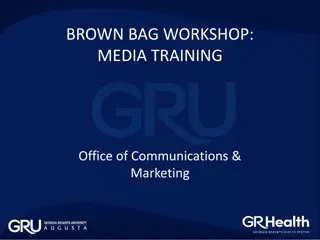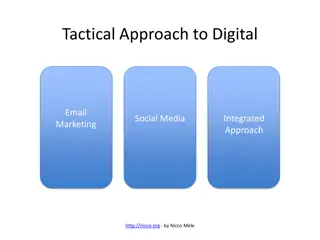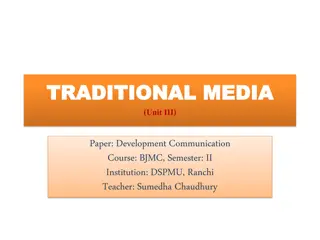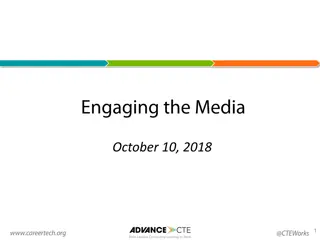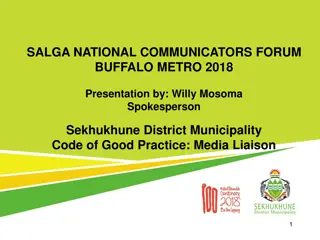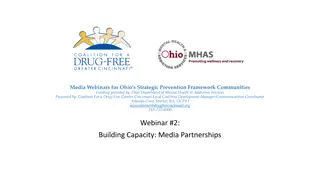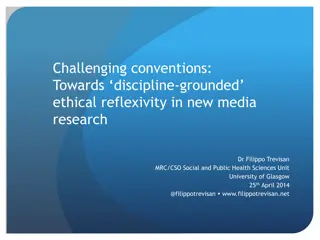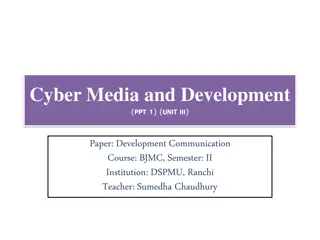Navigating Traditional Media: Tips for Successful Campaigns
Charlotte Mortlock, a former TV journalist, shares valuable insights on navigating traditional media during a campaign. Learn about common misconceptions, different types of media, tips for TV and radio interviews, and strategies to effectively interact with journalists to maximize coverage for your campaign.
Download Presentation

Please find below an Image/Link to download the presentation.
The content on the website is provided AS IS for your information and personal use only. It may not be sold, licensed, or shared on other websites without obtaining consent from the author. Download presentation by click this link. If you encounter any issues during the download, it is possible that the publisher has removed the file from their server.
E N D
Presentation Transcript
Media 101 Media 101 Navigating traditional media during a campaign PRESENTER: Charlotte Mortlock, Former TV journalist
Journalists Arent the Enemy Common misconceptions - They are looking for an angle or a development but not always to ruin your career - Conspiracy Theories about the big bad media - Keep your friends close, the media closer - Caveat - not every politician has to love doing media
The Different Types of Media You need to know the journalists intentions and the medium which they re using it for. 1. TV - PKG vs VSV vs LVO - Live interviews - down the barrel or on desk/in studio - Live presser/press conference - Live debate. How to interact w your opponent Tips for TV: - Only rookies overuse their hands - Only nervous people speak fast/fill silence *ALWAYS RECORD YOUR INTERVIEW!*
The Different Types of Media 2. RADIO - Talk back vs soundbite - The beauty of providing soundbites in regional areas - Don t read answers *ALWAYS RECORD YOUR INTERVIEW!*
TIPS FOR BROADCAST (TV and Radio) - - - The art of actually listening - do not stick to the script Building trust If there s a negative story or you need to defend something, a written statement is best.
The Different Types of Media 3. PRINT - - Always looking for an exclusive Ask if you can respond via email or does it need to be an email Don t shy away from being spicy - *ALWAYS RECORD YOUR INTERVIEW!*
Extra Mile Do you research BEFORE you pitch. Know them, AND know who you re trying to speak to. Watch interviews of the people who will interview you and your opponent.. See what views they go hard on, what they sympathise with Inappropriate to go for coffee but once the cameras stop recording, go speak to journos and build report Save everyone s numbers. Campaigns are wild. - - - -
HOW TO GET COVERAGE Without media you have next to no name ID Say yes to (almost everything) Exposure is key, but be protective of your brand Don t be everything to everyone Disagreeing is okay. Hero V Villain Emails or texts that get attention (timely, geographic proximity) Surveys - listening to telling Op Eds, op Eds, op Eds - - - - - - - -
INTERVIEWING PREP Research Ask what questions will be asked Know your own policies Authenticity Twitter alerts Google alerts Checking paper/radio - - - - - - - **ALL OF IT IS A WASTE UNLESS YOU RESHARE ON SOCIALS! MEDIA = CREDIBILITY**
PRACTICING No one has an excuse not to with an iPhone. Smile too much or not enough? Overusing your hands. How wide your eyes are. Eye contact - - - -
AND WERE LIVE - - Two brains at once It will take a stuff up to calm the nerves It s okay to say you don t know - say you ll take it on notice, but you can t say that to every question or you ll look clueless Listen to the question and ANSWER THE QUESTION Tell them that s a good question - shows your listening and builds report, use their name, gives you time. Don t talk over them If you get a question you like, you can use: that s an interesting point but I believe the real issues xxx what really matters is the thing that deserves our attention Don t ask if you can see the interview before it goes to air Keep your calm or the tantrum will draw attention GET SOMEONE TO RECORD IT! - - - - - - - -
TIME TO PUT IT TO THE TEST
FASHUN - - - - - - Be true to you Block Colours. Mindful of topic Not the time for risks Make up If you feel confident you interview is always better
Some extra little tips - Where can people find you? Connect with your community - virtually and physically. Back your policy with facts. Mix of anecdotal stories to show familiarity + stats/surveys - -
And some other little tips - ALWAYS expect to be speaking at EVERY event you re going to, even when they tell you explicitly you re not. Have two fun facts in every single event you go to - A Don t talk about age negatively - but you can be self deprecating The longer your answer the more you re hiding something. Voter trust issues in 2023 Buy your URL. Now. - - - -
ASK ME (almost) ANYTHING
For more information visit: @CMMortlock communitydirectors.com.au/training/women-lead
